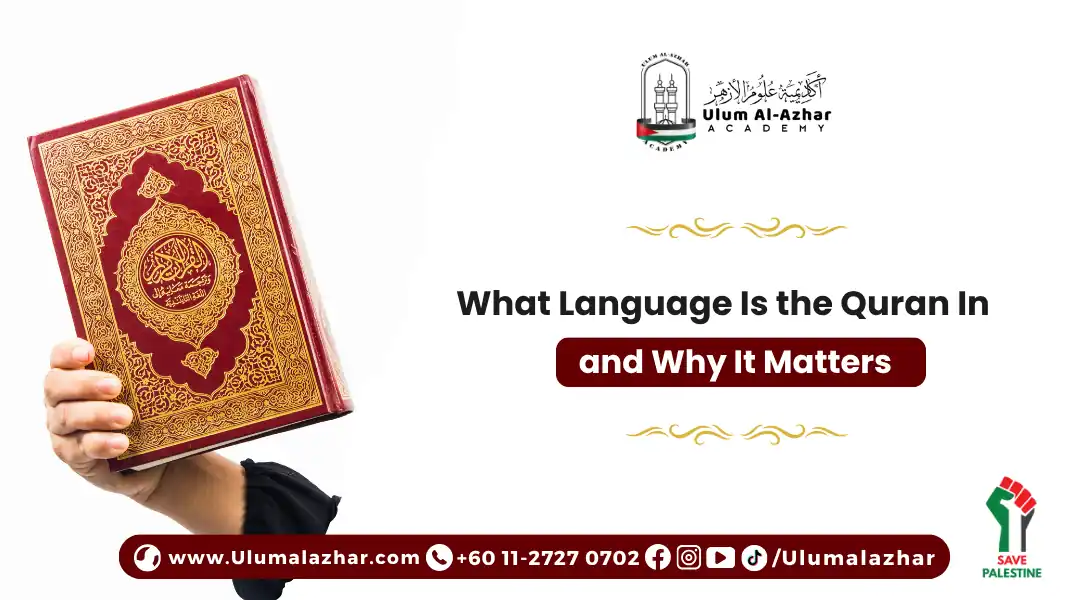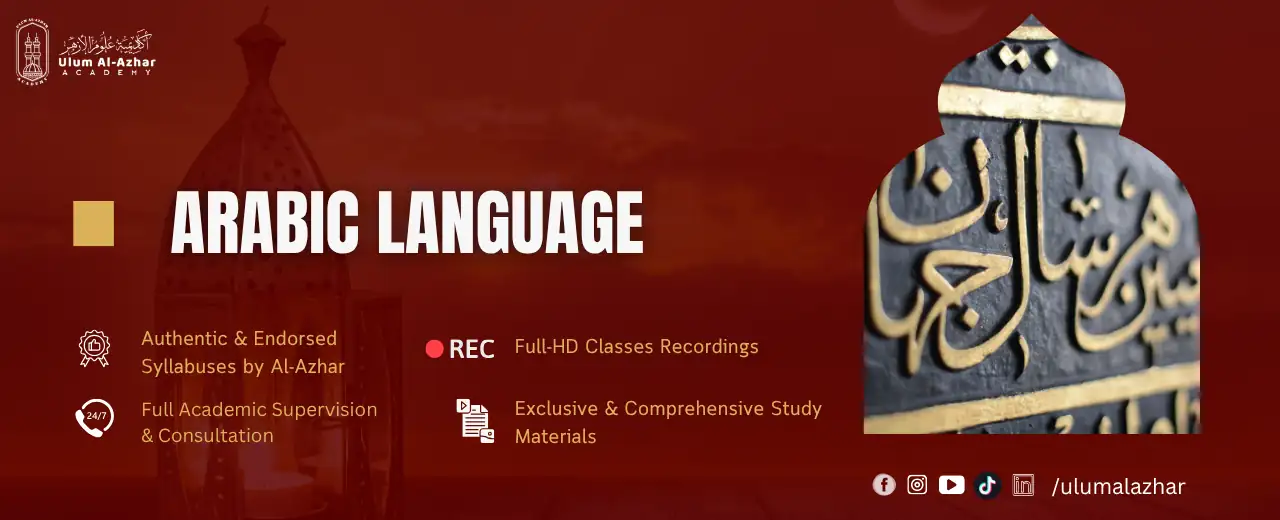
What Language Is the Quran In and Why It Matters
Have you ever stopped to consider why the simple question, “what language is the Quran in,” unlocks a world of spiritual and literary significance? Posing this question immediately takes us beyond a simple historical fact and into the heart of Islam’s sacred text. The Qur’an isn’t just a guide; it’s a testament to linguistic perfection. For more than fourteen hundred years, its masterful Arabic language—its unmistakable rhythm and profound eloquence—has been a foundational force in shaping faith, culture, and intellectual life.
What language is the Quran in, and why does that answer carry the weight of a miracle? To truly understand that, and to grasp its deep importance, is to realize why this divine book and its original Arabic tongue are inextricably linked, preserving its unique, transcendent power.
Table of Contents
Classical Arabic: The Language of Revelation
When people ask what language is the Quran in, the simple answer is Classical Arabic. But the truth goes much deeper than just naming a language. The Quran was revealed in a form of Arabic that existed in seventh-century Arabia, known for its eloquence, poetic richness, and clarity. This was not the ordinary Arabic of daily conversation or trade, but the refined Arabic spoken by the most eloquent poets and orators of the time.
In the era of revelation, Arabic was already a language of art and precision. Its grammar, morphology, and vocabulary allowed speakers to express complex ideas with beauty and efficiency. The Quran descended into this linguistic environment and surpassed every known standard of expression. Its verses display a harmony between meaning and sound, clarity and mystery, simplicity and depth — an unmatched blend that even the most skilled poets of Arabia could not imitate.
Thus, to answer What language is the Quran in correctly, one must not only say “Arabic” but also understand that it is Qur’anic Arabic, a refined and divinely perfected version of the human tongue. It represents the pinnacle of linguistic perfection through which God chose to communicate His message to humanity.
Ready for your Islamic learning journey? It all starts with free consultation and our Al-Azhar-certified Sheikhs in Egypt.
Linguistic Features of the Qur’an’s Style
When we study what language is the Quran in, scholars and language specialists are often amazed by its unique style. It has parts that feel like prose and parts that feel like poetry, but it isn’t exactly either. The way it flows with rhythm, uses repetition, and balances ideas makes it sound both musical and strong. What’s really special is that this holy book, which is originally in Arabic, loses a big part of its strength when it’s translated into another language. That is because of these features:
1. Eloquence of Expression
When we contemplate the Qur’anic discourse, we find evident creativity in its use of the most eloquent, expressive, and beautiful words — words that are pleasing to the ear. Every term, when examined closely, reveals letters that harmonize perfectly with one another.
In its vocabulary, one finds noble and dignified words where strength is required, and soft, gentle words where tenderness is intended. No matter how many times one reviews the entire Qur’an, one will never encounter a word that is coarse or repulsive, nor one that is awkward, vulgar, or unpleasant — the kind of word that refined taste would reject or that sensitive ears would find jarring.
2. Harmony Between Words and Meanings
This is a feature unique to the Qur’anic style. Choosing words for common meanings may be easy, but doing so for profound, abstract, or novel concepts is far more challenging. Yet, this is precisely what the Qur’an achieves with mastery — employing wondrous expressions to convey new and elevated meanings in matters of creed (‘aqeedah عقيدة) and law (shari‘ah شريعة).
Learn Shariah through the method of Talaqqi Kitab Turath (Traditional Study) and get certificates endorsed by scholars from AL Azhar (Ijazah Sanad).
3. Precision in Word Choice
Every single word in the Qur’anic discourse is selected with divine precision to deliver its meaning in the most eloquent way possible. A meaning can be enhanced by one word and weakened by another. Indeed, some words carry nuances and layers of meaning that their synonyms simply cannot express.
This becomes even clearer upon reflection: if one were to try replacing even a single word in the Qur’an with another, one would immediately feel the inadequacy of any substitution — as though attempting an impossible task.
4. Beauty of Composition
The structure and arrangement of words are among the most captivating features of the Qur’an. Through its composition, the Qur’anic discourse surpasses all forms of human speech. A word may appear powerful and graceful in one context, yet sound discordant and unappealing in another — but in the Qur’an, every word appears in its most fitting and radiant position.
5. Cohesive Harmony
The words of the Qur’an bind together in perfect cohesion, each strengthening and beautifying the other in tone and rhythm. It is impossible to omit even a single word from a Qur’anic verse without disturbing its meaning or flow, for every word has been chosen intentionally to convey a specific message.
The Qur’anic discourse thus comes in a deliberate formulation — with meticulously crafted letters and sounds that produce a precise rhythm and resonance. The intended meaning cannot be completed without them. This is one of the unique linguistic miracles of the Qur’an.
6. Precision of Endings (Verse Endings / Fawāṣil)
The Qur’anic discourse often concludes with rhythmic endings (fawāṣil) that give each verse a distinctive beauty and identity. These endings are intricately and precisely connected to the meanings they convey, merging the semantic and the musical in perfect harmony.
Why the Qur’an Was Revealed in Arabic
One may wonder, why was the Qur’an revealed in Arabic? The divine wisdom behind this choice is profound.
1. The Prophet ﷺ — to whom the Qur’an was revealed — was an Arab, and Allah Almighty says:
“And We did not send any messenger except [speaking] in the language of his people.” (Surah Ibrahim: 4)
2. Furthermore, the Arabic language possesses inherent qualities of endurance and preservation that make it the most lasting of all Semitic languages. It was therefore most fitting that the final, eternal revelation should be revealed in this enduring tongue.
3. The Arabic language is the most expansive among the Semitic languages. It alone is capable of encompassing the wide range of Qur’anic meanings, while other languages would fall short in expressing many of them. Thus, it was most appropriate that the Qur’an — a book meant to guide all of humanity across cultures and generations — should be revealed in Arabic.
4. The Arabic language has remained uncorrupted and pure through the ages. The Arabs revered and protected it, guarding it from distortion. Living in the deserts, far from foreign influence and urban mingling, their language remained untouched by impurities.
5. Then, when Allah wanted for them to open up to the world, He safeguarded their language with a divine protection — the revelation of the Qur’an — which became the eternal shield preserving its purity. From that point, Arabic continued to live, grow, and develop — pure, noble, and unsullied by the traces of other tongues.
How Qur’anic Arabic Influenced World Literature
When examining what language is the Quran in, one cannot ignore the vast cultural and literary legacy it created. Qur’anic Arabic transformed not only religious discourse but also global literature, philosophy, and art.
1. It provided writers and literary figures with a valuable treasure that enabled them to choose the words most harmonious with meaning — those most capable of conveying and suggesting it effectively.
2. It exposed them to diverse styles of expression and elevated methods of eloquent composition, allowing them to acquire exceptional skill in shaping meanings and presenting them through various approaches and linguistic techniques.
3. It enriched them with new concepts and insights they had not known before, drawing on innate emotions, rational reflection, sound judgment, and the noble moral principles prescribed to them — such as kindness, brotherhood, justice, fairness, and equality. These values and ideas opened before them new horizons of thought, expanding their intellectual fields and refining their literary, intellectual, and cultural production — yielding works both delightful and profoundly beneficial.
4. All of this enhanced their intellectual capacities, enabling deeper contemplation, fuller understanding, and clearer expression. As a result, they succeeded in producing numerous literary and linguistic works. It also nurtured their artistic talents, inclining them toward spontaneity, simplicity, and sincerity in their expression.
Begin your Arabic learning path with 1 Best Online Quranic Arabic Course, where you learn & practice the language of Quran with qualified Arab tutors from Al-Azhar Al-Sharif, Egypt in Online Quranic Arabic Course.
Conclusion
Understanding what language is the Quran in is not a matter of trivia; it is a journey into the heart of revelation. The Qur’an was revealed in Classical Arabic — a language chosen for its clarity, depth, and unmatched expressive power. Through it, God communicated a message that is both timeless and universal.
The Arabic of the Qur’an is a miracle in itself: a language that unites sound and meaning, intellect and emotion, logic and spirituality. It is the reason why Muslims recite the Qur’an in Arabic during prayer, and why every translation is considered an interpretation rather than the Qur’an itself.
Initiate your Islamic learning journey by enrolling in free consultation with Al-Azhar-certified Sheikhs from Egypt.
FAQs
What language is the Quran in originally?
The Qur’an is in Classical Arabic, specifically the dialects of Quraysh and neighboring tribes, refined into a perfect form of divine eloquence.
Can the Qur’an be translated into other languages?
Translations exist in hundreds of languages, but they are considered interpretations of meaning, not the Qur’an itself.
Is Qur’anic Arabic different from Modern Arabic?
Yes. Qur’anic Arabic reflects the pure form of Classical Arabic, while Modern Standard Arabic evolved from it. Understanding what language is the Quran in helps readers appreciate the difference between sacred and modern linguistic usage.



